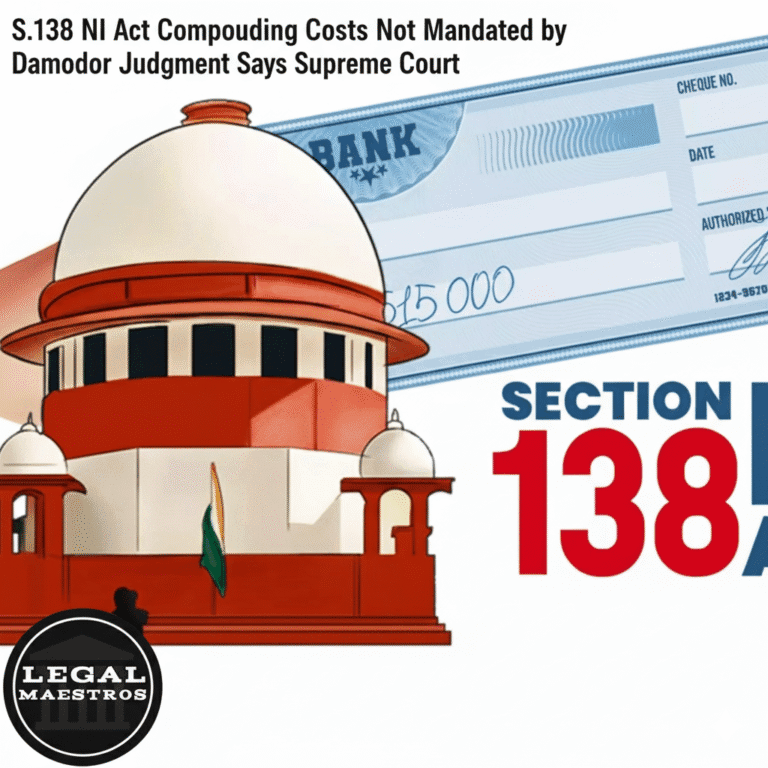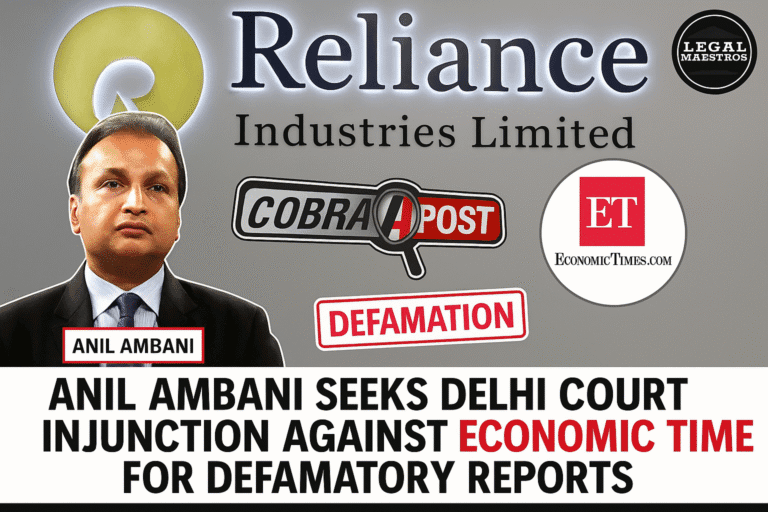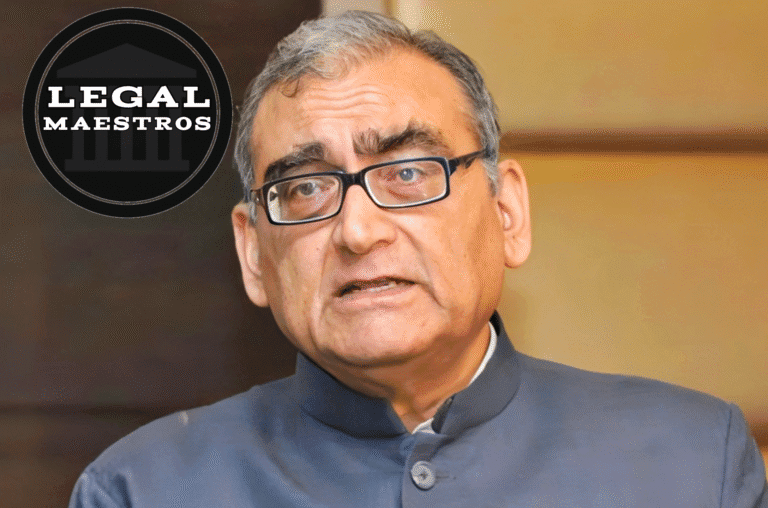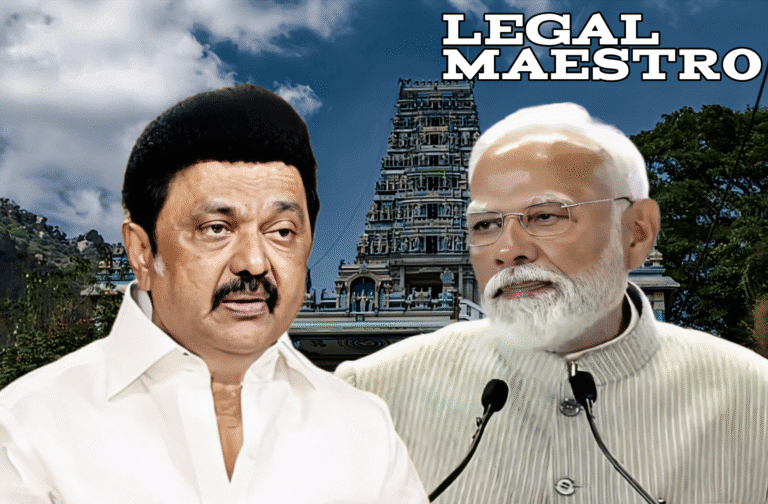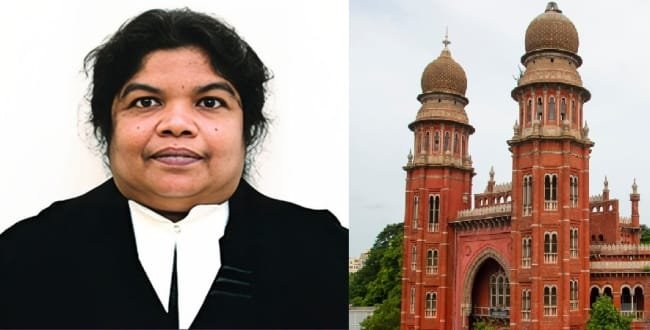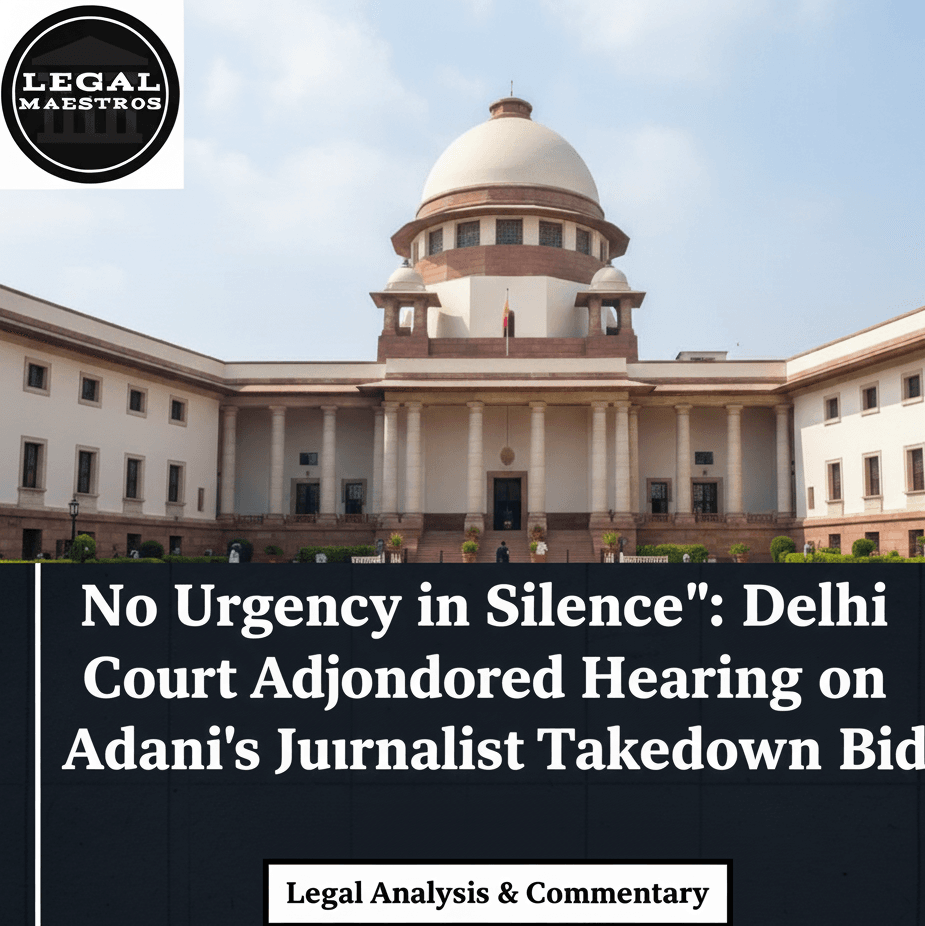
No Urgency in Silence': Delhi Court Adjourned Hearing on Adani's Journalist Takedown Bid
A High-Stakes Clash Over Press Freedom
The Adani Group, a corporate giant, is India is involved in a major legal tussle that is opposed to the conglomerate by several independent journalists and media houses. The company has gone to a court in Delhi and requested an interim injunction, a potent weapon of law that could compel the company to take down certain online articles and video reports of its business activities. This action has paved the way to a high profile battle of the frontiers of free speech and freedom of press in India.
The case is filed against journalism that has reported on a number of issues concerning the conglomerates business. In filing a petition requesting a takedown order, the Adani Group is claiming that such content is defamatory and is doing its reputation and business interests irreparable harm. Many believe that this case of litigation is a test case, and is a critical one at that, as it brings to light the tension that is developing between the powerful businesses and the media as a custodian of the masses.
And the journalists are on the other end of the legal battle, supporting their coverage. They claim their work is founded on the factual information, documents and it is released in the common good. They can defend themselves through the cornerstones of a free press that gives them the right to research and report on influential forces, making them liable to society. The case has consequently caught the attention of many media firms and civil liberties groups.
For any queries or to publish an article or post or advertisement on our platform, do call at +91 6377460764 or email us at contact@legalmaestros.com.
This basic debate has taken place in the courtroom. The results of this case may have far-reaching consequences on the practice of investigative journalism in the country, particularly when it concerns the examination of the affairs of some of the most powerful corporations in the country. It is an age old battle between the right of a corporation to defend its image and the right of the media to inform citizens.
The Court’s Key Remark: ‘No Urgency in Silence’
In a recent hearing, a significant twist resulted in the proceedings courtesy of an astute remark made by the judge. As the lawyers of the Adani Group asked the court to hear it immediately and interim to remove the content, the court pointed to the latitude in taking legal proceedings against the company. This prompted a landmark comment of the judge, “‘No Urgency in Silence’, which has come to define this phase of the court fight.
This single statement has a lot of legal implications. The court was indicating that the articles and videos in question have existed online long enough. The fact that the Adani Group did not pursue legal action at the time of the first publication of the content works against their current argument that the issue is of great urgency. Law Applicant must move promptly when seeking urgent relief; a long silence would indicate that the damage alleged was not as grave or imminent as alleged.
For any queries or to publish an article or post or advertisement on our platform, do call at +91 6377460764 or email us at contact@legalmaestros.com.
Based on this observation the court ruled to adjourn the hearing and it would not grant an immediate takedown order. The effect of this decision is that the court does not perceive an urgent necessity to gag the journalists prior to conducting any hearing on the merits of the case. It enables the existent articles and reports to stay on the internet as the process of the law is carried out in its usual course providing the accused with enough time to draft a defense.
Although not the final ruling on the case, this court position is a major initial win by the journalists. It avoids the immediate subjugation of their labor, such as would have been effected by an urgent injunction. The fact that the court was not in a hurry to make a decision indicates that it will be keen to address the tough questions of free speech and the public interest that are central in this case.
The Content Under Scrutiny
The news content the Adani Group is trying to have removed allegedly ventures into the financial structures of the conglomerate, business activities, and the massive scandals that have surrounded the group over the recent past. Although the individual pieces were not in fact covered in open court, the circumstances leading to the suit suggest that the stories in question were part of a series of investigative articles that likely arose in the wake of the sensational accusations of the US-based short-seller Hindenburg Research.
For any queries or to publish an article or post or advertisement on our platform, do call at +91 6377460764 or email us at contact@legalmaestros.com.
These are reports published by different independent reporters and media outlets that are claimed to cast serious doubts on the corporate governance of the group, as well as its debt. Defence of the journalists is likely to suggest that what they did was a fair exercise of journalism prepared to enlighten people and investors about a company that has an enormous influence on the Indian economy. They will also probably provide evidence that their reporting was comprehensive and factual.
Many media-freedom activists are considering this legal test a possible SLAPP, or Strategic Lawsuit Against Public Participation. SLAPS are commonly initiated by large organizations whose main goal is to threaten and silence their critics. The aim is not necessarily to prevail in the case on its facts but to exhaust the defendants, in this case journalists and small media houses, economically and emotionally, making them go into silence.
With this formulation of the lawsuit, the defendants will claim that the legal action being taken against the Adani Group is not an attempt to defend its reputation but a move to silence the critical voices and to dishearten the critical eye. This defense takes a typical defamation case and makes it a larger battle against what they believe is corporate censorship.
For any queries or to publish an article or post or advertisement on our platform, do call at +91 6377460764 or email us at contact@legalmaestros.com.
The Chilling Effect on Investigative Journalism
In addition to the details of this individual case, the suit brought by the Adani Group has led to a broader discussion regarding the possibility of a so-called chilling effect on investigative journalism in India. It is a term used to describe the state of affairs in which reporters and media outlets are afraid to investigate and write aggressive stories regarding influential figures or companies due to the risk of incurring expensive and exhausting litigation costs.
The inequity of such legal battles is clear. A giant organization such as the Adani Group has virtually unlimited financial and legal resources to maintain a lengthy legal battle. By contrast, single journalists or independent media houses are usually working on shoestring budgets and intimidation of a lawsuit can easily make them avoid publishing such a scandalous story no matter how well researched it is.



